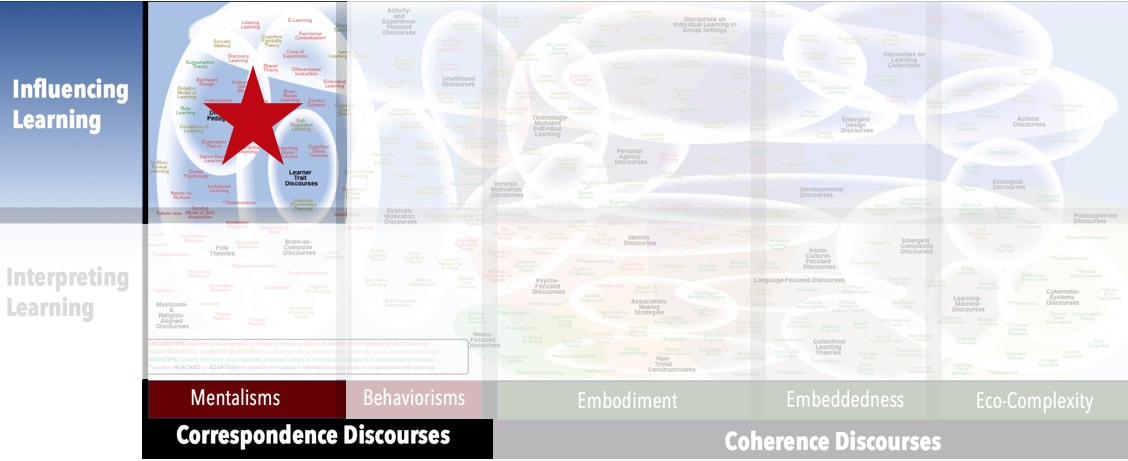AKA
Invitational Education
Invitational Theory
Focus
Rendering the experience of formal education more invitingPrincipal Metaphors
Invitational Learning is not explicit about assumptions or assertions on learning. In the materials we reviewed, proponents appeared to invoke the Attainment Metaphor most frequently:- Knowledge is … a territory/area/domain/field (typically involving challenge)
- Knowing is … attaining a goal
- Learner is … a seeker (individual)
- Learning is … journeying (arriving at, reaching, progressing, accomplishing, achieving)
- Teaching is … leading, guiding, directing, facilitating
Originated
1970sSynopsis
Invitational Learning is a perspective on education that begins by asserting four essential human traits: trust (that one will find one’s best way to do things), respect (of others), optimism (with regard to the vastness of human possibility), and intentionality (to do good with/for others). These traits are seen to be developed through “five Ps” – people (mostly teachers), places (mostly school-based), policies (rules), programs (curriculum), and processes – which can be either disinviting or inviting.Commentary
Invitational Learning is a stance that is big on moralizing and small on theorizing. It thus presents a frame that is useful for judging, but that offers almost no practical advice – apart from strategies and foci to help people feel better about themselves.Authors and/or Prominent Influences
William Purkey; Betty SiegelStatus as a Theory of Learning
Invitational Learning is not a theory of learning.Status as a Theory of Teaching
Invitational Learning is a theory of teaching – or, perhaps more accurately, a theory of teacher attitudes. It offers little pragmatic advice for the actual task of teaching.Status as a Scientific Theory
Invitational Learning is anchored in moral imperatives, not formal science.Map Location

Please cite this article as:
Davis, B., & Francis, K. (2023). “Invitational Learning” in Discourses on Learning in Education. https://learningdiscourses.com.
⇦ Back to Map
⇦ Back to List
